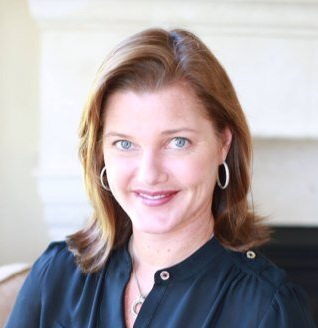The Sales Mind Shift Essential For Social Selling Success
- Published in Demanding Views
 An Interview With Jill Rowley, Social Selling Evangelist
An Interview With Jill Rowley, Social Selling Evangelist
The B2B sales funnel is in a constant state of fluidity with more and more channels being created to allow more meaningful customer engagement. However, sales reps are not as flexible when it comes to learning and using new selling techniques to close more deals. The growing popularity of social selling, and the number of sales reps that use it incorrectly, is a prime example.
In a recent interview with social selling evangelist Jill Rowley, we discussed the current state of social selling in the B2B landscape, while also highlighting ways old-fashioned sales reps need to change before leveraging social selling within their sales strategy.
Demand Gen Report: What are your thoughts on how B2B salespeople are leveraging new social channels?
Jill Rowley: New channels for engaging buyers will always fall victim to bad sales people — it’s inevitable. This always happens with new channels. New channels are invented, discovered and adopted. Sales teams then take their bad habits (cold calling, unsolicited emails, constant pushing and selling, etc.) into these new channels and it completely kills it. Ultimately, no one has ever wanted to be sold to, and now people have an opportunity to avoid it.
I use the fact that “social selling” is a buzzword and hot topic to have a bigger conversation about the massive transformation that has to occur in how we use the word “sell.”
I have a definition for social selling, and it is using social networks to do research, to be relevant, to build relationships that ultimately drive revenue, customer lifetime value and customer advocacy. But the most important out of all of that is the relationships that are built.
DGR: How are these bad habits affecting social selling as a whole?
JR: It really scares me — especially with LinkedIn’s news Sales Navigator feature, which is a strong social tool — that bad sales people will keep doing the same bad habits.
What I always say is “a fool with a tool is still a fool.” And that’s what this is; we have a new tool that can help sales people build relationships with their buyers, and people are still going to do foolish things with it — which really bums me out because they will most likely ruin it for the rest of us.
This isn’t modern day trickery. If you do not represent your company in-person as you do when you are on social media, buyers will notice this and will instantly question your credibility. Having someone write your bio for you and add all the buzzwords can make you look like an evangelist, but if it’s not true you have a BIG problem. People buy from people. Those people have to have trust, and it takes a long time to earn a reputation — but only a second to lose it.
DGR: How can traditional sales reps begin transforming themselves to use social media more effectively?
JR: The first thing that I always try to step back and take a look at it through the eyes of my customers. You have to understand what the business outcomes they are trying to achieve are, and think of it less as how you plan to “sell” them and more as how you can help them. The goal is truly to help them understand what the opportunity is, and how to address it. This isn’t about the sales guy, it’s about the customers.
There is a whole process for sales reps to transform into social sellers. There is a mindset shift from selling to serving and helping that needs to take place, then there is a skill set that sales people have to learn in order to properly utilize social selling effectively and efficiently. Lastly, there are tools out there that can make a difference, and sales reps need to leverage them accordingly.
The mindset shift has to occur first, or these sales reps will fall into the same old school tactics that are hindering their productivity.
There also has to be a complete culture shift, and it starts at the top. We’re measuring the wrong metrics, and I get that we need to measure behavior and activity but I advocate that we need to measure social activity as well. Number of connections, number of new connections, the quality of those connections. But the fear is that we will still focus on quantity over quality. So I think we at least have to change focus on the quality to see social selling success.
DGR: What sort of mindset should sales people have when implementing social selling into their sales strategy?
JR: In sales, people say they have hunters who go out and look for new deals, then you have farmers who nurture. Sales people have to be more like magnets, and draw in those prospective buyers that they're supposed to be out there "hunting". If done right, social selling draws deals in, instead of interrupting potential buyers.
You don't become a magnet overnight. It's a habitual process of educating, learning, teaching and engaging with your growing community. With strategies like cold calling, it’s either you get a lead or you don’t. Social selling is going to take time and effort before you maximize your overall potential.

